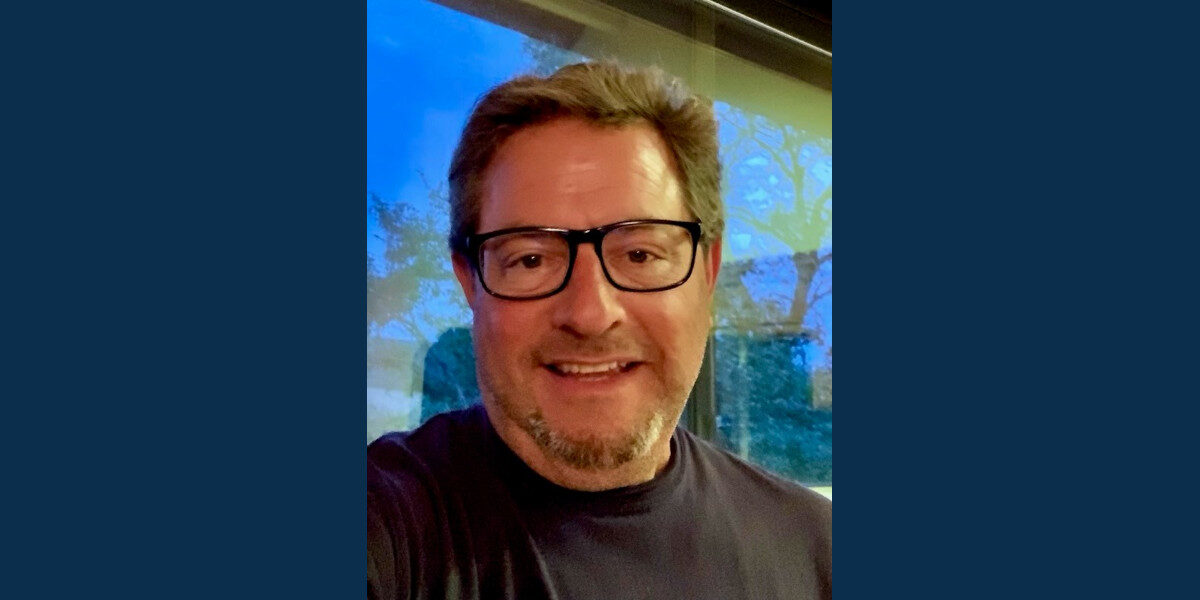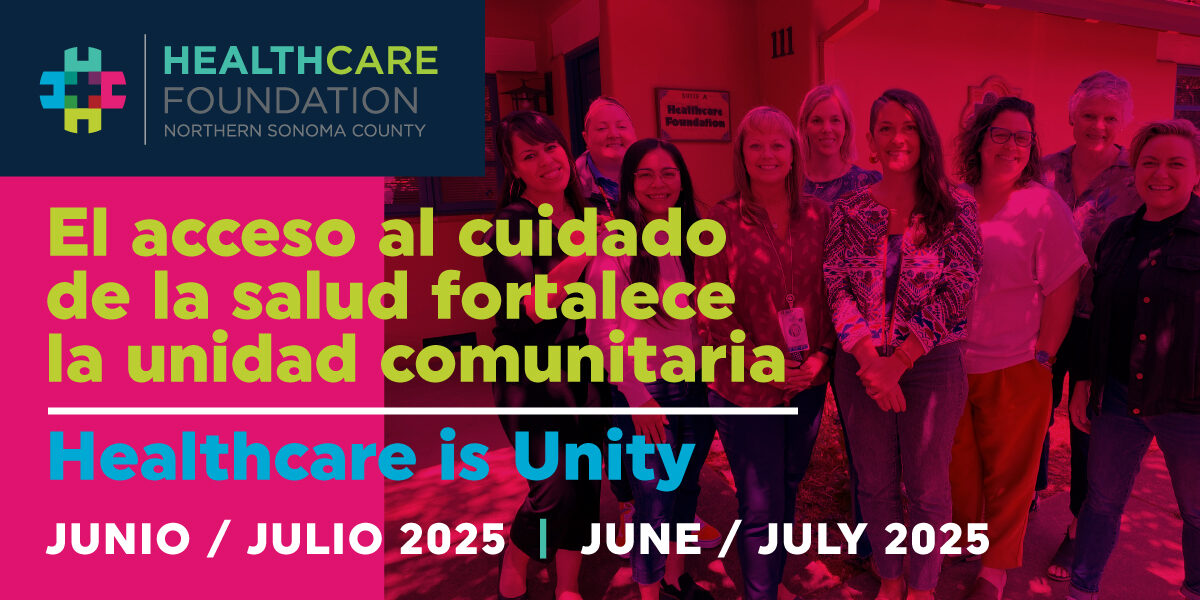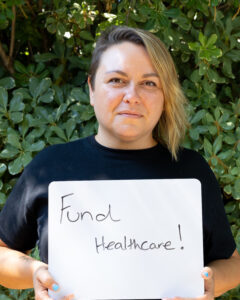

The Mental Health Talent Pipeline Turns Five! A Conversation with Supporter Mark Freed
4 min read. Mark Freed, one of the first seed funders of the Mental Health Talent Pipeline, shares his thoughts about how the program has evolved.
On the occasion of this year’s fifth anniversary of the Healthcare Foundation’s Mental Health Talent Pipeline (MHTP), we spoke with Mark Freed, an early supporter of the scholarship program who was instrumental in helping to launch MHTP as a pilot project aimed at building professional capacity to narrow the gap in bilingual and bicultural mental health services for our region’s Latine residents.
After spending nearly 3 decades in San Mateo County working for a global semiconductor company, Mark relocated to Healdsburg in 2018 to live on a Cabernet/Zinfandel vineyard and make wine. With a philanthropic history focused mainly on education and saving the natural environment, and having recently established his own charitable foundation, Mark began familiarizing himself with the landscape of nonprofits in Sonoma County, eventually coming into contact with the Healthcare Foundation and former executive director Debbie Mason.
Impressed by the organization’s accomplishments and its vision for northern Sonoma County—and, in particular, by the emerging idea of a scholarship program that could build a pipeline of bilingual and bicultural mental health providers available to serve Spanish-speakers in the region—Mark soon joined Marc and Jeanie Kahn and Steven Ungerleider in providing essential seed funding to test the concept.
Since that successful pilot year, MHTP has evolved, in partnership with USF Santa Rosa, into a full-tuition scholarship and has also grown to support paid local traineeships to ensure bilingual/bicultural graduate students in counseling psychology can afford to continue their education by serving communities here in northern Sonoma County.
To date, the Mental Health Talent Pipeline has supported a total of 21 graduate students in achieving their MFT master’s degrees. As third-year trainees and eventually full-time practicing clinicians, those MHTP program participants have collectively served some 2,800 unique individuals, and counting, across northern Sonoma County. Moreover, through positions with local school districts and organizations like SOS Community Counseling, many of those served have been children and their families.
In order to build on this successful model, and sustain and grow the MHTP program over the next five years, Mark has recently joined a group of generous supporters in putting forward a $50,000 challenge match for new and lapsed donors. For more information on how to support this effort and match your contribution dollar-for-dollar, please visit this page.
What drew you to support the idea of the Mental Health Talent Pipeline back in 2018?
I had moved up from San Mateo County. I had retired from corporate California, and was looking for a place to focus my charitable donations and make an impact. I looked very closely at a set of organizations to decide which I wanted to work with. I soon met [former executive director] Debbie Mason. I really liked her, and I liked the mission of the Healthcare Foundation, what it had done and what it was trying to do. The organization seemed very well run, and I started to get involved. I talked to various leaders in and around the Healthcare Foundation. I got introduced to Marc Kahn, and we talked for a while about what he and Jeanie were doing and what I wanted to do. Ultimately, the concept was brought forward and I thought it was awesome, the idea of training bilingual professionals who would commit to stay in the region. I came to understand that this was part of the problem in Sonoma County. People growing up here might go on to get a degree but if they got a job offer it was likely to be outside of Sonoma County, and they would take it. The idea was to finance a track for new professionals to practice locally, providing free or low-cost services on a bilingual basis, and starting with the schools—it all made perfect sense!
“As one of the initial seed fund investors of the Mental Health Talent Pipeline pilot program, I am thrilled to partner with the Vallas on the fifth-year anniversary, which will infuse funding into the program’s lifecycle and ensure it has a solid foundation.”
Mark Freed, early supporter of the Mental Health Talent Pipeline
Why support those who provide mental health services? Well, on a personal level, I had been through a number of challenging life experiences by the time I arrived in Healdsburg, and when needed, I was fortunate to find and receive mental health support from trained professionals wherever I was located. Back in the day, most people weren’t as open as they are today about the benefits of mental health support and the importance of being able to get it when you need it. Now you hear more open discussions about the importance of seeking mental health resources across our society, including among sports stars, movie stars, corporate stars—everybody’s talking about their mental health challenges and how much it helped to have someone to talk to, someone to help them through. I came to recognize that a lot of societal problems were exacerbated by poor mental health and limited or no access to mental health professionals. Also, I was a vineyard owner, and was getting to know the culture of Sonoma County and its agricultural workers, some of whom didn’t speak English and didn’t have access to trained professionals. Having the financial means to access mental health providers is a privilege. And why not work to spread that privilege around the community so that it is available to all who seek it and would benefit from access to mental health professionals?
How does the program compare with the expectations you had at the outset?
It has exceeded expectations! I feel really good about its accomplishments! With the Mental Health Talent Pipeline, I was expecting we would help a small number of aspiring students become trained professionals and, in turn, provide crucial services to a small group of people in the local community. I never imagined that it would take off the way it has. It’s phenomenal how many students have been trained now and are providing services to hundreds and hundreds of patients.
Why this year have you chosen to join with Gene and Susanne Valla to provide a $50,000 match campaign for the Mental Health Talent Pipeline program?
As one of the initial seed fund investors of the Mental Health Talent Pipeline pilot program, I am thrilled to partner with the Vallas on the 5th year anniversary, which will infuse funding into the program’s lifecycle and ensure it has a solid foundation. I have been fortunate enough to be a part of the program’s evolution from pilot to full-fledged program. Due to the Healthcare Foundation’s oversight and critical partnership with University of San Francisco, I am exceedingly satisfied with the program’s outcomes and growth. It has been fully vetted and the $50,000 match will build the program’s capacity, sustainability and growth, which in turn builds our region’s equitable access to bilingual/bicultural mental health services.
What are your hopes for the next five years?
The industry that I come from is very fast moving. You hit one objective, and make ten more; then you hit those ten, and make a hundred more. It’s always moving further ahead into the future, faster and faster. That eventually gets to be overwhelming frankly but, all kidding aside, the basic model that I’ve lived by for 30 years makes me think: This program has proven to be effective in Sonoma County. There are many other counties facing similar problems. It’s such an excellent program, why can’t we implement it beyond Sonoma County? That would be a great 5 year objective!

Related News + Stories
Invest in Our Community
Your support is vital to our collective vision of eliminating health inequities in northern Sonoma County.
Donate



